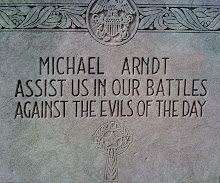Frank Gehry has never designed a structure that’s achieved LEED certification, and I’d wager that he never will, based on his gruff remarks during a public Q&A on April 6 in Chicago. The 81-year-old also jabbed a thumb, somewhat in jest, in the eye of fellow architect Renzo Piano and museum directors in general, and he described the early stages of creating a design.
Gehry, whose most famous work is the Guggenheim Museum in Bilbao, Spain, was interviewed in the Harold Washington Library by Thomas Pritzker, chairman of the Pritzker Foundation, which awards the annual Pritzker Architecture Prize, and Hyatt Hotels Corp. His family also wrote the check for the Gehry-designed Jay Pritzker Pavilion in Chicago’s Millennium Park. (Hyatt itself recently won a LEED silver designation for a new hotel in Seattle.)
LEED stands for Leadership in Energy and Environmental Design and was created by the U.S. Green Building Council to promote the construction of buildings that are healthier for the earth as well as occupants inside. Developers seems to be tripping over one another to win LEED status these days.
What would you think, Pritzker asked him as they sat in hard-backed chairs on an auditorium stage, if a client said he wanted a LEED-certified building? “Oh, great,” Gehry answered in a high, mock-excited voice, as the audience laughed. Then, back in his regular voice, he dismissed environmental concerns as largely political concerns. “A lot of LEEDs are given for bogus stuff. A lot of the things they do really don’t save energy.”
He also said the expense of building to LEED standards often outweighs the benefits. On smaller projects, he said, “the costs of incorporating those kind of things don’t pay back in your lifetime.”
He seemed eager to resume another fight when the conversation turned to Millennium Park, whose new neighbors include the Art Institute of Chicago’s Modern Wing, designed by Piano and opened last year largely to acclaim.
Gehry recalled daring Piano to relocate the addition so it would directly face Millennium Park and the Pritzker Pavilion. “Renzo, come get me, baby,” Gehry said he told him. Piano did move the annex, which is now linked by a pedestrian bridge to the park. So how do you think it turned out? Pritzker asked.
Gehry replied that from inside the Modern Wing galleries, visitors can’t help but see the stainless-steel ribbons that adorn his pavilion. “He’s gotten better,” he faint-praised Piano, again to laughter. “You know the sibling rivalry between architects. We love each other, but we’re insanely competitive. Even at 81, I still do it. I can’t help myself.”
He suggested that something bold, like his Bilbao museum, would have been a better. But he said right after that building opened, the world’s top museum directors got together in London and, according to a friend who was there, voted never to commission another like it. “I think museum curators and directors like the predictable, so it’s all easy,” Gehry said. “A little bit of laziness, maybe.”
Pritzker recalled being a family vacation with Gehry in India and watched him sketch plans for a new building. Pritzker said the drawings looked like “scribbling.” Gehry said there’s more to building design than that, though he confessed: “I’ve always wanted to figure out to just do the sketch, get paid, and get out of there.”
He said his first step is to build a site model of roughly 10 blocks around the site, to see how his new building night fit in. Then he does a bigger-scale model of two or three blocks. He also walks around the area to understand the community. “It’s a pretty well-informed mind that starts to sketch,” he said. “I maybe do 20 or 30 of these drawings that look like scribbles. But when the buildings are finished and you look at the drawings, a lot of them look like the buildings.”
Gehry said he’s kept these sketches over his career and now has a file cabinet with perhaps 4,000 drawings. I’m sure even one of those stick-in-the-mud museum curators would love to put them on display.


No comments:
Post a Comment